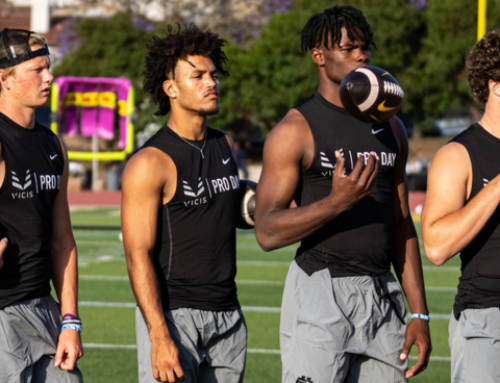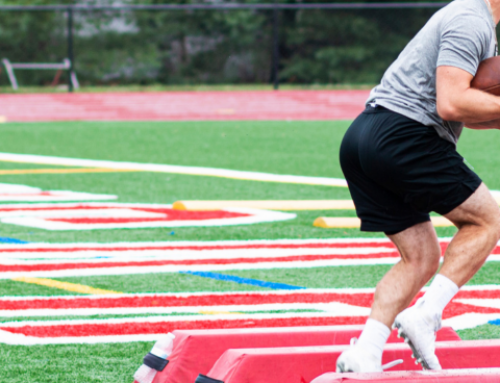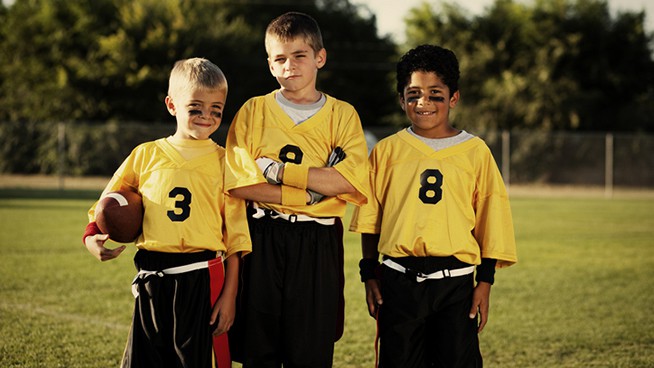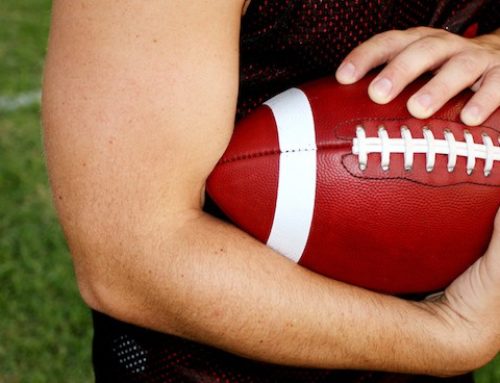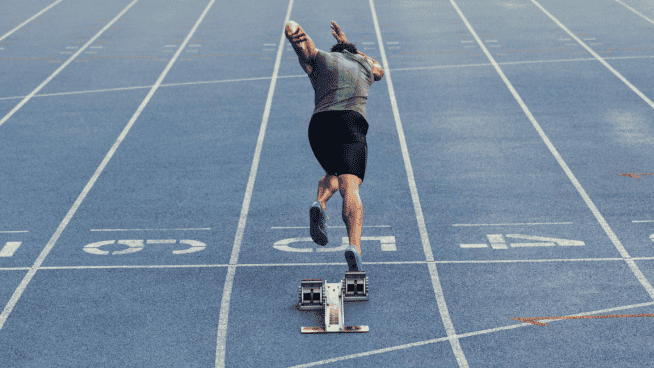J.J. Watt weighs himself before and after every practice for two reasons—to monitor his body weight and to make sure he’s consuming enough fluids to stay properly hydrated. (Learn about Watt’s nutrition strategy for strong starts to practices and games.)
Peyton Manning increases his intake of fluids—water and Gatorade—the night before practice.
That’s how two of football’s biggest stars beat the heat. What are you doing to combat triple-digit temperatures this August?
As teams report for two-a-days, thousands of football players across the country will battle extreme temperatures and humidity, putting them at risk for heat-related illnesses such as cramps, heat exhaustion and heat stroke.
Water and sports drinks are not enough. When the mercury soars, your clothing, sleep habits, practice schedule and workout intensity all factor into your health and safety.
Eliminate potential heat-related illness with the following tactics:
Adopt a re-hydration strategy. Hydration helps you reduce your risk of heat illness and maintain a high level of performance. Proactive steps for avoiding dehydration include:
- Weigh yourself before and after activity
- Consume 20 ounces of fluid for each pound lost during activity
- Monitor your urine. Light, lemonade color is a sign of adequate hydration. Dark, apple juice color means you’re dehydrated.
Drink up. Flavored, cold, lightly salted sports drinks like Gatorade help you replace the fluids you lost.
Cool it. If you experience symptoms of heat illness, lie down in a cool place with your legs elevated and apply cool, wet towels to your body.
Dress for the weather. Avoid wearing excess clothing and opt for light colors. Remove helmets when inactive and change sweat-soaked clothes frequently.
Find time for recovery. Plan rest breaks throughout the day and get six to eight hours of sleep each night in a cool environment.
For more summer heat survival tips, check out the complete 2013 Heat Safety Kit brought to you by Gatorade.
RECOMMENDED FOR YOU
J.J. Watt weighs himself before and after every practice for two reasons—to monitor his body weight and to make sure he’s consuming enough fluids to stay properly hydrated. (Learn about Watt’s nutrition strategy for strong starts to practices and games.)
Peyton Manning increases his intake of fluids—water and Gatorade—the night before practice.
That’s how two of football’s biggest stars beat the heat. What are you doing to combat triple-digit temperatures this August?
As teams report for two-a-days, thousands of football players across the country will battle extreme temperatures and humidity, putting them at risk for heat-related illnesses such as cramps, heat exhaustion and heat stroke.
Water and sports drinks are not enough. When the mercury soars, your clothing, sleep habits, practice schedule and workout intensity all factor into your health and safety.
Eliminate potential heat-related illness with the following tactics:
Adopt a re-hydration strategy. Hydration helps you reduce your risk of heat illness and maintain a high level of performance. Proactive steps for avoiding dehydration include:
- Weigh yourself before and after activity
- Consume 20 ounces of fluid for each pound lost during activity
- Monitor your urine. Light, lemonade color is a sign of adequate hydration. Dark, apple juice color means you’re dehydrated.
Drink up. Flavored, cold, lightly salted sports drinks like Gatorade help you replace the fluids you lost.
Cool it. If you experience symptoms of heat illness, lie down in a cool place with your legs elevated and apply cool, wet towels to your body.
Dress for the weather. Avoid wearing excess clothing and opt for light colors. Remove helmets when inactive and change sweat-soaked clothes frequently.
Find time for recovery. Plan rest breaks throughout the day and get six to eight hours of sleep each night in a cool environment.
For more summer heat survival tips, check out the complete 2013 Heat Safety Kit brought to you by Gatorade.



